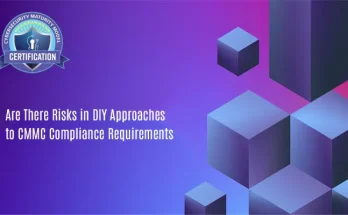Managing costs is a crucial aspect of running a successful tech business. With the rapid advancement of technology and the competitive nature of the industry, efficient cost control becomes essential to maintain profitability and sustain long-term growth. In this article, we will explore strategies and practices to achieve efficient cost control in tech business operations, enabling companies to optimize their resources and maximize their financial stability.
Embrace Cloud Computing
One of the most effective ways to streamline costs in tech business operations is by embracing cloud computing. Cloud services provide scalable infrastructure, allowing businesses to reduce the need for expensive hardware and maintenance costs. By migrating to the cloud, companies can take advantage of flexibility, pay-as-you-go models, and the potential for significant cost savings. This allows tech businesses to allocate resources more efficiently and scale their operations as needed.
Virtualize Infrastructure
Virtualization is another cost-effective strategy that tech businesses can employ to optimize their operations. By consolidating physical servers into virtual machines, companies can reduce hardware, power, and cooling costs. Virtualization also provides easier maintenance, higher scalability, and improved disaster recovery options. The ability to run multiple virtual servers on a single physical machine ensures efficient resource utilization and cost savings in both the short and long term.
Optimize Energy Consumption
Energy costs can significantly impact the expenses of tech business operations. Implementing energy-efficient practices and technologies can lead to substantial savings. This includes adopting power management tools, using energy-efficient server hardware, optimizing cooling systems, and establishing policies to encourage employees to minimize energy consumption. By prioritizing energy efficiency, tech businesses can make a significant impact on their cost control efforts while also contributing to sustainability goals.
Leverage Open-Source Software
Software licensing fees can constitute a significant portion of a tech business’s expenses. Leveraging open-source software can help reduce these costs while maintaining high-quality solutions. Open-source software, backed by a vibrant community of developers, offers a cost-effective alternative to proprietary software. It allows tech businesses to customize and adapt solutions to their specific needs, eliminating the need for expensive licenses and reducing dependence on vendor-specific platforms.
Implement Remote Work Policies
The global shift towards remote work provides an opportunity for tech businesses to optimize costs. By embracing remote work policies and implementing the necessary infrastructure, companies can reduce office space requirements, decrease utility costs, and eliminate commuting expenses. Remote work also has the potential to increase employee satisfaction and productivity while fostering a better work-life balance. This cost-saving approach can benefit both the company and its workforce, ultimately enhancing overall business efficiency.
Continuously Evaluate and Adjust Expenses
Efficient cost control requires ongoing evaluation and adjustment. Tech businesses should regularly assess their expenses, identifying areas where costs can be reduced without compromising quality or productivity. This includes negotiating vendor contracts, optimizing subscriptions, and reviewing budget allocations. By closely monitoring and analyzing expenses, companies can make informed decisions to optimize costs while ensuring that resources are allocated strategically.
Achieving efficient cost control in tech business operations is a critical task for sustainable growth and profitability. Embracing cloud computing, virtualizing infrastructure, optimizing energy consumption, leveraging open-source software, implementing remote work policies, and continuously evaluating expenses are strategic approaches that can significantly impact a tech business’s financial stability. By being proactive in managing costs, companies can navigate the competitive tech landscape successfully, achieve operational efficiency, and position themselves for long-term success.





